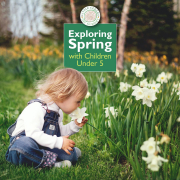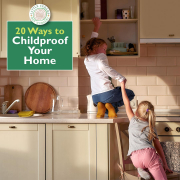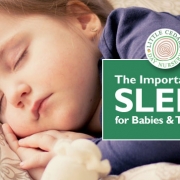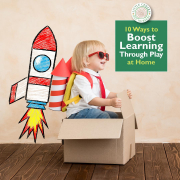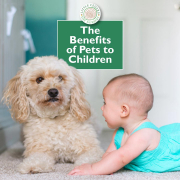Speech Milestones at 30 Months
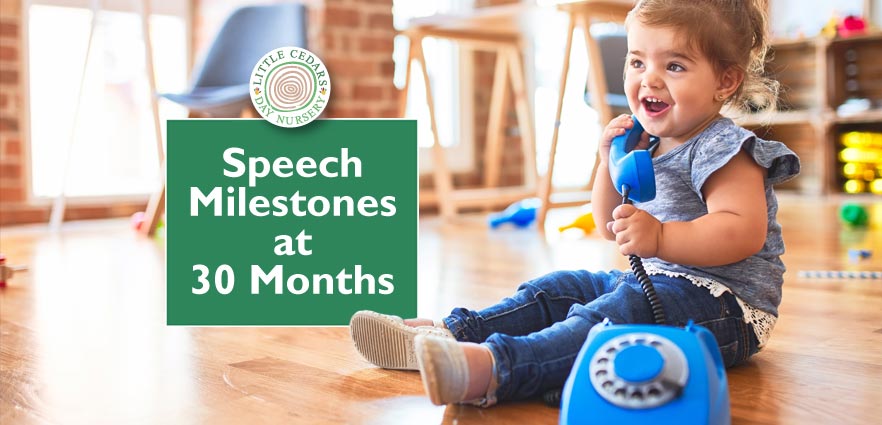
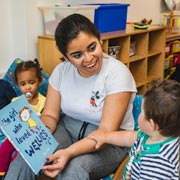 Milestones are a crucial thing to monitor when you’re bringing up a baby or young child. Speech is an important one and it’s one that parents would be wise to take stock of at regular times in their child’s early years. Today we look at this milestone at around the age of 30 months. So, what should you expect your 30-month-old to be able to say at this age and, if appropriate, how can you encourage them to speak more? Let’s explore speech milestones at 30 months…
Milestones are a crucial thing to monitor when you’re bringing up a baby or young child. Speech is an important one and it’s one that parents would be wise to take stock of at regular times in their child’s early years. Today we look at this milestone at around the age of 30 months. So, what should you expect your 30-month-old to be able to say at this age and, if appropriate, how can you encourage them to speak more? Let’s explore speech milestones at 30 months…
So, What is the Average 30-Month-Old Saying?
It’s important to appreciate that children develop skills, including speech, at different rates and times. However, that said, by the age 30 months (2½ years of age), many toddlers can say about 200 or more words. They can also start to put 2- or 3-word sentences together. Conversations between you and your toddler are starting to take shape, with exchanges back and forth. Parents, or anyone looking after your toddler on a regular basis, should understand about 50% of a child’s speech at 2 years of age, increasing to about 75% at 3 years.
30 Month Speech Milestones
By the age of 30 months:
- Toddlers are starting to successfully use verbs as part of their language, for example, drinking, dressing, and playing.
- They are starting to use two or even three syllable words, like carrot and banana.
- They are starting to use three to four words into short sentences, for example, “We go to swings.”
- They understand that adding an ‘s’ to nouns makes them plural, for example toys.
- They can say their own name.
- They are differentiating between big and small.
- Having learnt to take turns and share with other children, they may use words like “share.”
- The can understand a question like, “Where is the ball?”
- They may still be practising putting the correct sound at the beginning of each word.
- They may have accomplished the general sound but may still be trying to properly finish words.
Encouraging your Toddler to Talk More
 The more ‘chatty’ time you have with your toddler, the more they will naturally get involved — and learn from you. Talking to your toddler facilitates good listening skills and helps them to build up their own vocabulary, particularly when you make physical reference to the things you are talking about. In this way they can associate a word with its physical equivalent (e.g. holding up or pointing to an object that you’re talking about).
The more ‘chatty’ time you have with your toddler, the more they will naturally get involved — and learn from you. Talking to your toddler facilitates good listening skills and helps them to build up their own vocabulary, particularly when you make physical reference to the things you are talking about. In this way they can associate a word with its physical equivalent (e.g. holding up or pointing to an object that you’re talking about).
Helping them build vocabulary can be as simple as talking to them about what they are having for lunch, or about activities they are taking part in. Maybe talk about friends and family, daily activities such as dressing, meal times and suchlike. Use words that they will relate to and therefore eventually understand. For example, “What jumper would you like to wear today? Would you like to wear the purple one?” or, “It’s cold outside today; shall we put our coats on?”
When talking about objects, try expanding the conversation. For example, say, “The car is going fast,” or, “The big blue ball.” Try and describe things as you speak to your child as it will add to their vocabulary and comprehension.
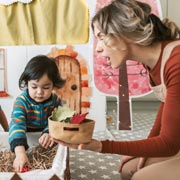 Use repetition. This helps your toddler through hearing the same words over and over again. They will copy and get used to which words go with which scenario in this way. You can take this a step further too…
Use repetition. This helps your toddler through hearing the same words over and over again. They will copy and get used to which words go with which scenario in this way. You can take this a step further too…
There are many songs and nursery rhymes that toddlers can join in with. Sing along to them, do the actions to the songs and encourage your child to join in. Then, they’ll learn words and sentences through both repetition and song — and it’s all achieved in a fun way!
Talk about feeling words. For example, “The boy is happy, the girl is sad”. You can use the appropriate face to back up the words.
Puzzles and books are a great way to lean new words. Basic puzzles, often of farm animals or vehicles, or incorporating colours, are a great opportunity for your toddler to repeat the words relating to the puzzle pieces as you point them out.
 The same applies to books. Get your toddler to point out details in pictures sand repeat the words after you. You can also ask your toddler questions about the book and get a conversation going, for example, whether they know a particular character, a particular object or a colour. Point to details and see if they know the word, or say the word out loud and let them repeat it.
The same applies to books. Get your toddler to point out details in pictures sand repeat the words after you. You can also ask your toddler questions about the book and get a conversation going, for example, whether they know a particular character, a particular object or a colour. Point to details and see if they know the word, or say the word out loud and let them repeat it.
Making up games can encourage your toddler to get involved verbally. Pretending to be animals, spacemen or any character at all can promote their speech, even if it’s copying from a character they have seen on screen time.
Remove distractions like TV and music when speaking with your child. It will help them concentrate more on listening to and speaking with you.
Help them with their sentences. For example, if they say, “This ball”, you could clarify it and say, “Yes, this is a ball.”
What if You’re Concerned About Your Toddler’s Speech?
As we said near the start, it’s important to remember that all toddlers are different and you cannot compare them to their friends or family and expect them to all learn and develop at exactly the same rate. That being said, perhaps ask yourself:
- Can my toddler say at least 50 up to potentially 200 words (and actually understand up to 500)?
- Can they say their name?
- Can they respond well to instructions?
- Do they respond to questions involving “who” or “what”?
- Can they say what is going on in a particular scenario? For example, if you asked, “What is the boy playing with?” can they recognise and say the answer, e.g. “A ball”?
- Can they point and say what pictures are in a book or puzzle?
If you have any concerns, it is worth mentioning it to a health professional just in case, for example your GP or health visitor. In some rare cases, this may identify speech or even hearing issues. In such cases, a child can be referred to an appropriate professional, for example a speech and language therapist (‘SLT’) although parents in the UK are also able to make a referral themselves (more information is available here). If there’s no problem, though, advice from a professional may simply put your mind at ease. At the very least, a closer understanding of your toddler’s progress will be beneficial to all parties, including the child.
More information about helping your little one to learn to speak is available on the NHS website.
Childcare Places at our Wonderful Nursery & Pre-School in Streatham
Babies & Under-Fives Get the Best Start in Life at Little Cedars Nursery, Streatham

 This article was brought to you by the team at Little Cedars Nursery in Streatham. Here, babies and children under five are lovingly looked after, given the best early years education and nurtured for success in a fun, homely environment. The nursery and pre-school has a good Ofsted rating.
This article was brought to you by the team at Little Cedars Nursery in Streatham. Here, babies and children under five are lovingly looked after, given the best early years education and nurtured for success in a fun, homely environment. The nursery and pre-school has a good Ofsted rating.
Why not come for a visit, so that you can see the nursery and pre-school in action? Bring your little one and see how well they will fit in. Or, if you’ve already decided you’d like to register for a place for a child — or ask any questions — please get in touch using an appropriate button below:
Little Cedars Nursery is based in Streatham, close to Tooting Common and the A214. It is also convenient for families near Streatham Hill, Streatham Park, Streatham Common and Furzedown as well as Tooting, Tooting Bec, Tooting Broadway, Tooting Common, Balham, Norbury and Colliers Wood.

